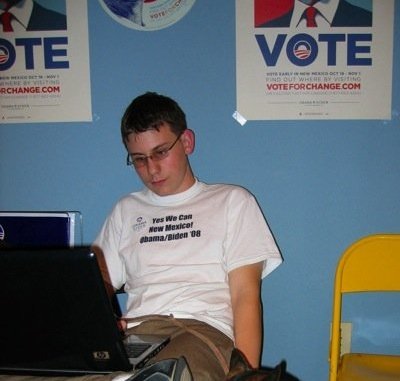Does free will, free choice, exist? This is a question that people have argued about for centuries, even millenia. It has implications everywhere in our life, but, at the same time...nowhere. You see, if free will exists, then we can continue to feel as if we rule our own lives, and very little, possibly nothing, would change. On the other hand, if free will does not exist, then nothing happens. Then we must consign ourselves to an eternity of knowing that whatever we do, it is not our choice, that it is not even our choice to wonder if it is our choice. Confusing stuff.
Religions would be hugely impacted by the discovery of either true free will or the absence of it. Most major religions are based on the simple idea that what you do determines your place in the afterlife, that you have an effect, and that the particular deity you pray to will actually give a damn be able to do anything about it. If it were discovered, or logically proven that there is no free will, well then, most of the religions in the world would be invalidated (Puritanism and the concept of predestination excepted). However, I seriously doubt that anyone belonging to a religion affected by this "discovery" would believe a word of it. They would simply continue on their current path, and perhaps prove the non-free-will camp right in doing so. Such are the quandaries and paradoxes of this concept.
In fact, it is because of these many paradoxes that I believe we will never find out. I also think that that is just as well. We as humans are mentally incapable of resolving the issue of free will, and so I believe it will never be solved. I don't think that's bad, though, I just think that it's the truth. That's not to say we can't speculate on it, though, which is what I will proceed to do.
First, though, I have to explain Einstein's special theory of relativity, in very simple terms. Basically, what Einstein postulated was that
a. The laws of physics are the same for all observers in uniform motion relative to one another, andb. The speed of light in a vacuum is the same for all observers, regardless of their relative motion or of the motion of the source of the light.
One of the consequences of this theory is that time moves slower the faster one moves. This is kind of mind-boggling at first, so let me explain. Say two friends, Joe and Bill, synchronise their watches, which tick at the exact same rate, and then Joe jumps in a rocket and goes flying off around the universe for a year. When Joe returns, he and Bill compare their watches and, lo and behold, Joe's watch is "behind" Bill's. One might be led to conclude that therefore, Joe's time was moving slower than Bill's, but in reality, Joe was only moving slower in relation to or relative to Bill. Time was still moving "correctly" for both of them. (I encourage anyone who wants to find out more about this to check out the episode of WNYC's Radiolab called "Beyond Time.")
Now this creates a paradox. How can Joe and Bill exist in the same place, at the same time, when Joe has lost time relative to Bill? To me, this is the only true form of time travel, and it is explored in one of my favorite books (and indeed throughout the whole series), Ender's Game by Orson Scott Card. To Einstein, this meant that "time is an illusion. We who know know there is no distinction between the past, the present, and the future." This sounds like Einstein was saying that everything exists at once, that all moments that have happened, are happening, or will happen exist in a common "time" and that it is just our perception of the sequence of these events that causes the illusion of time.
OK, that's interesting, but what does it mean for free will? Well, a lot, as it turns out. If all things that have happened, are happening, or will happen are preset and it's just us and our perception of them that creates "time," then that means that there is no free will. All things already exist.
Another way to look at this is in the context of the many-worlds interpretation of quantum physics. It's very technical and I don't really understand it all, but the gist is this: according to the many-worlds interpretation, every time that there is a possibility in a given timeline (we are in a timeline, our linear view of the set of occurrences we call "time"), that timeline branches and creates new timelines, each one containing one of the possible outcomes of that possibility. This creates an infinite number of timelines, each contained in its own universe, collectively called "the multiverse". This interpretation arises from the inherent uncertainty of quantum physics, a branch of physics in which nothing can be taken as a sure thing and everything is measured in probabilities. It is to deal with these different probabilities and possibilities that the many-worlds interpretation (and many others) exist.
Anyway, if we take Einstein's view of time in the context of the many-worlds interpretation, then perhaps all timelines and all possiblities exist somewhere in the multiverse. If we found a way to jump between these timelines, then we would truly have free will; being able to pick and chose realities. I don't think that will happen. I think that that is about as likely as travelling to the past.
Maybe we don't have free will, but we can have the illusion.


No comments:
Post a Comment